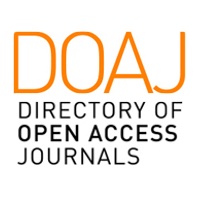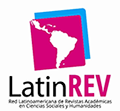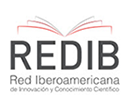NEUROSCIENCE AND TEACHER EDUCATION: PREVALENCE OF MYTHS IN UNDERGRADUATES AND TEACHERS IN SCIENCE TEACHING. A CASE STUDY IN THE FEDERAL DISTRICT
DOI:
https://doi.org/10.31639/rbpfp.v14i30.561Keywords:
Scientific Literacy, Neuromyths, Teacher Training, Science TeachingAbstract
The current context generated by the COVID-19 pandemic and the proliferation of misinformation regarding science highlights the importance of understanding scientific literacy among educators, especially in middle- and low-income countries. Thus, this work proposes to evaluate the knowledge about the brain and the prevalence of neuromyths among In-service and In-Training Teachers in Brasilia. To this end, the participants were asked to answer an online questionnaire containing 32 statements, 16 of which were designed to assess teachers’ knowledge about the brain and the remaining 16 statements are neuromyths. The average score for knowledge of the brain was 60.3% and the average score for neuromyths was 37.5%. The results allow for the conclusion that a gap in neuroscience-related knowledge persists among educators. The consequences of this misinterpretation or misrepresentation may prevent educators from taking advantage of neuroscience concepts.
Downloads
References
BARTOSZECK, Amauri Betini; BARTOSZECK, Flavio Kulevicz. How in-service teachers perceive neuroscience as connected to education: an exploratory study. European Journal of Educational Research, v. 1, n. 4, p. 301-319, 2012.
BRASIL. Base Nacional Comum Curricular. Disponível em:< http://basenacionalcomum. mec. gov. br/#/site/inicio>. Acesso em: mai, 2021.
BRUYCKERE, Pedro; KIRSCHNER, Paul; HULSHOF, Casper. Urban myths about learning and education. Academic Press, 2015.
CAMILLO, Cíntia Moralles. Neuroscience and learning in Science teaching. Research, Society and Development, v. 10, n. 6, p. e20510615721-e20510615721, 2021.
CARVALHO, Diego de; VILLAS BOAS, Cyrus Antônio. Neurociências e formação de professores: reflexos na educação e economia. Ensaio: avaliação e políticas públicas em Educação, v. 26, p. 231-247, 2018.
COFFIELD, Frank et al. Learning styles and pedagogy in post-16 learning: A systematic and critical review. 2004.
DEKKER, Sanne et al. Neuromyths in education: Prevalence and predictors of misconceptions among teachers. Frontiers in psychology, v. 3, p. 429, 2012.
DELIGIANNIDI, Karolina; HOWARD-JONES, Paul A. The neuroscience literacy of teachers in Greece. Procedia-Social and Behavioral Sciences, v. 174, p. 3909-3915, 2015.
FERRERO, Marta; GARAIZAR, Pablo; VADILLO, Miguel A. Neuromyths in education: Prevalence among Spanish teachers and an exploration of cross-cultural variation. Frontiers in human neuroscience, v. 10, p. 496, 2016.
GLEICHGERRCHT, Ezequiel et al. Educational neuromyths among teachers in Latin America. Mind, Brain, and Education, v. 9, n. 3, p. 170-178, 2015.
HAWKEY, Elizabeth; NIGG, Joel T. Omega− 3 fatty acid and adhd: Blood level analysis and meta-analytic extension of supplementation trials. Clinical psychology review, v. 34, n. 6, p. 496-505, 2014.
HERCULANO-HOUZEL, Suzana. Do you know your brain? A survey on public neuroscience literacy at the closing of the decade of the brain. The Neuroscientist, v. 8, n. 2, p. 98-110, 2002.
HOWARD-JONES, Paul A. et al. The neuroscience literacy of trainee teachers. In: British Educational Research Association Annual Conference. Manchester: University of Manchester, 2009. p. 1-39.
HOWARD-JONES, Paul A. Neuroscience and education: myths and messages. Nature Reviews Neuroscience, v. 15, n. 12, p. 817-824, 2014.
HYATT, Keith J. Brain Gym®: Building stronger brains or wishful thinking?. Remedial and special education, v. 28, n. 2, p. 117-124, 2007.
IDRISSI, Abdelkrim Janati et al. Brain knowledge and predictors of neuromyths among teachers in Morocco. Trends in Neuroscience and Education, v. 20, p. 100135, 2020.
LAS-CASAS, Lucas; MENEZES, João Paulo de Menezes. Neurociência educacional: análise bibliográfica das contribuições da neurociência cognitiva no contexto da aprendizagem do ensino fundamental. Revista Electrónica de Enseñanza de las Ciencias, v. 19, n. 3, 2020.
LOPES, Fernanda Machado et al. O que sabemos sobre neurociências?: conceitos e equívocos entre o público geral e entre educadores. Revista Psicopedagogia, v. 37, n. 113, p. 129-143, 2020.
MACDONALD, Kelly et al. Dispelling the myth: Training in education or neuroscience decreases but does not eliminate beliefs in neuromyths. Frontiers in psychology, v. 8, p. 1314, 2017.
OECD. PUBLISHING. Understanding the brain: Towards a new learning science. Organisation for Economic Co-operation and Development, 2002.
RATO, Joana Rodrigues; ABREU, Ana Maria; CASTRO-CALDAS, Alexandre. Neuromyths in education: What is fact and what is fiction for Portuguese teachers?. Educational Research, v. 55, n. 4, p. 441-453, 2013.
SÁ, Adrielle Lourenço; CARMO NARCISO, Ana Lucia; FUMIÃ, Herman Fialho. Neurociência cognitiva e Educação: análise sobre a prevalência de neuromitos entre os docentes de Matemática e das demais áreas do conhecimento atuantes na SRE de Carangola-MG. Educação (UFSM), v. 45, p. 58-1-25, 2020.
SERPATI, Lauren; LOUGHAN, Ashlee R. Teacher perceptions of neuroeducation: a mixed methods survey of teachers in the united states. Mind, Brain, and Education, v. 6, n. 3, p. 174-176, 2012.
SILVA, Matheus Augusto. Neurociênia, educação e a formação de professores: a percepção sobre origem e aceitação de neuromitos entre licenciados em Ciências da Natureza. 2020. 174 f. Dissertação (Mestrado) Programa de Pós-Graduação em Ensino de Ciências e Educação Matemática, Universidade Estadual de Ponta Grossa. 2020.
SILVA, Matheus Augusto; PEREIRA, Ana Lúcia. Neurociência e Educação para a Ciência: que tipos de produtos “baseados no cérebro” são encontrados nos sítios eletrônicos mais acessados por brasileiros?. Revista Valore, v. 3, p. 176-187, 2018.
TARDIF, Eric; DOUDIN, Pierre‐André; MEYLAN, Nicolas. Neuromyths among teachers and student teachers. Mind, brain, and Education, v. 9, n. 1, p. 50-59, 2015.
THOMAZ, Estrella Marlene da Silva et al. Neurociências e seus vínculos com ensino, aprendizagem e formação docente: percepções de professores e licenciados da área de ciências da natureza. 2018. 124 f. Dissertação (Mestrado) - Programa de Pós-Graduação em Educação em Ciências e Matemática, PUCRS, 2018.
VAN DIJK, Wilhelmina; LANE, Holly B. The brain and the US education system: Perpetuation of neuromyths. Exceptionality, v. 28, n. 1, p. 16-29, 2020.
WAAS, B. M. Biologie voor Jou. ‘s-Hertogenbosch: Malmberg, 2009.
Downloads
Published
How to Cite
Issue
Section
License
Copyright (c) 2022 João Paulo Cunha de MENESES (Autor)

This work is licensed under a Creative Commons Attribution-NonCommercial-ShareAlike 4.0 International License.
Copyright belongs exclusively to the authors. The license rights used by the journal are the Creative Commons Attribution-NonCommercial 4.0 International (CC BY-NC-SA 4.0) license: sharing (copying and distribution of material in any medium or format) and adaptation (remixing), transformation and creation of material from the content are allowed.































